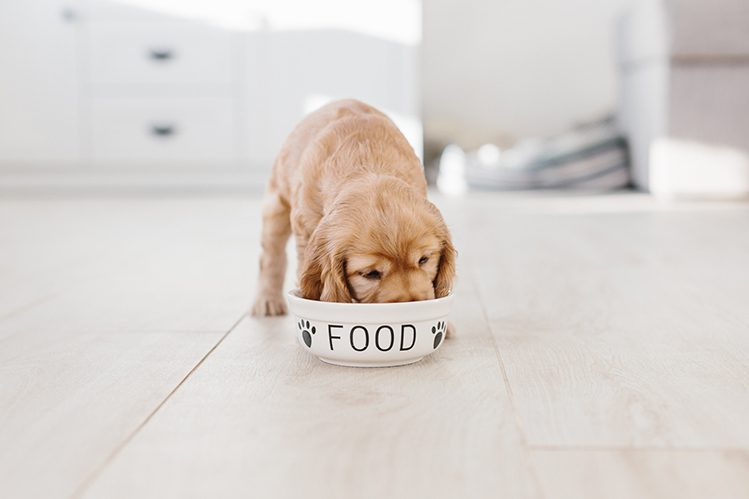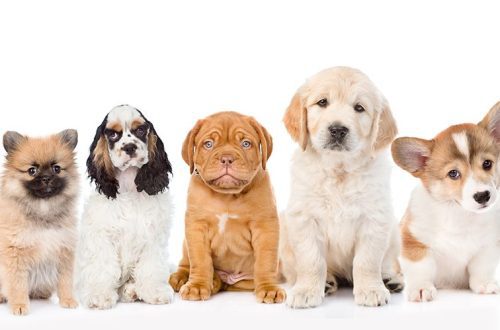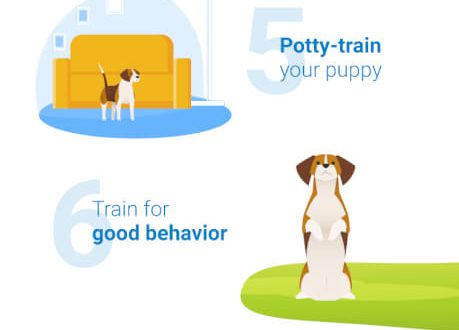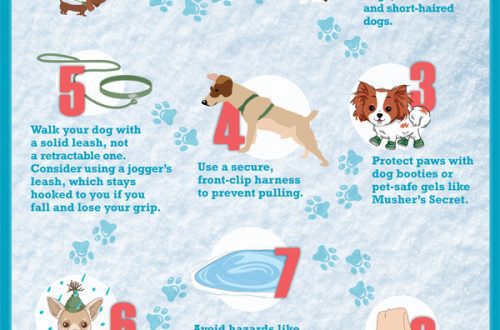
Puppy from 1,5 to 3 months: what stages of development does it go through?
What you need to know about a puppy at 1,5 months old? It would seem that he is still a baby and does not know how to do anything. But it’s not. In just half a month, the baby will already be able to move to a new home and begin an almost independent life, away from his mother. What to pay attention to during this period? How will the puppy change by 3 months? About this in our article.
Usually at 1,5 months the puppy still lives with his mother, surrounded by his brothers and sisters. He eats mother’s milk and the first “adult” food – a starter, gets stronger and prepares to move to a new home.
1,5-2 months is the time of active games, the first lessons of behavior and socialization. Kids play with each other all the time, and the mother dog looks after them. You may think that puppies at this age are just having fun, but in fact they are doing a tremendous job. The crumbs watch their mother all the time and repeat her behavior, read her reactions. Repeating after their mother, they learn to interact with the surrounding people and objects, to communicate with each other. By two months, the baby already receives a basic set of reactions and skills.
In the period from 1,5 to 3 months, the weight of a puppy of a large breed will increase by almost 2 times, and a small one – by 1,5. The baby is growing before our eyes!

If you have recently booked a puppy and he is now just 1,5 months old, this is the perfect time to prepare the house for the arrival of the crumbs and remember the rules for caring for him.
Enlist the support of the breeder and veterinarian. At first, you will need to continue to feed the puppy the same food that the breeder gave him, even if this choice is not entirely to your liking. An abrupt change in food will become stressful for the baby and will most likely result in indigestion.
At 6-8 weeks, the puppy is given the first vaccination. Usually it is carried out by the breeder. Be sure to discuss this point. Check the vaccination schedule: you will need to follow it. After a full vaccination, the baby will be ready for his first walks. Usually this age is about 3-3,5 months.
Usually a puppy moves to a new home at the age of 2-3 months, and already from the first days he is ready to be taught a nickname, place and other basic commands.
If you took a puppy from a breeder at 2 months and everything went according to plan, then usually by 3 months the baby is already used to you and other family members. He knows where his place is, responds to the nickname, is accustomed to the feeding regimen, is familiar with grooming procedures, masters the leash or harness. By 3 months, the puppy is already able to follow commands:
Place
Must not
Fu
To me
Play.
During this period, you need to continue to instill in the puppy the norms of behavior at home, prepare him for the first walks and teach him to adequately respond to surrounding stimuli: for example, the barking of another dog on the street or a car signal.
Teach your pet to keep the house in order: go to the toilet for diapers or go outside (after vaccination and quarantine), calmly wait for you from work, entertaining yourself with special toys, and not damaging household shoes.

The kid still has a lot to learn, but a start has already been made. It is important that you do the right thing too. Be a leader, but a friend. Be a caring and understanding parent even when you punish your puppy. Learn to understand its capabilities depending on age and individual data. Don’t over-demand. Help the baby to survive the stress, and do not become its cause.
Learn to work in a team – and you will definitely succeed!





